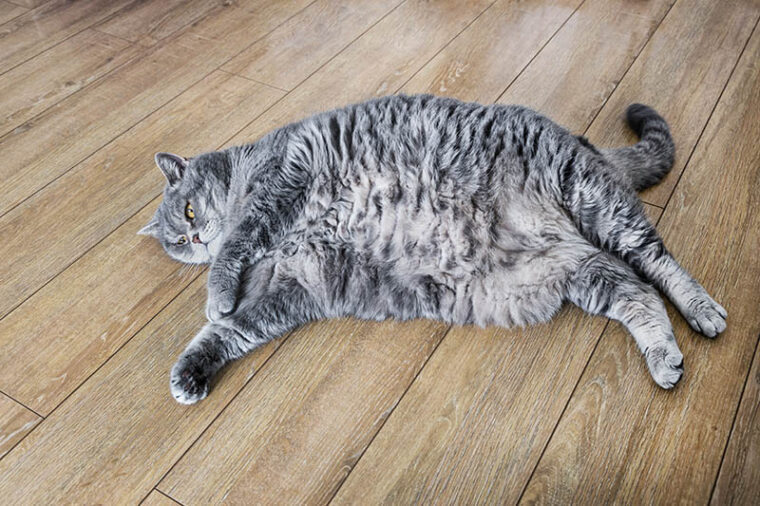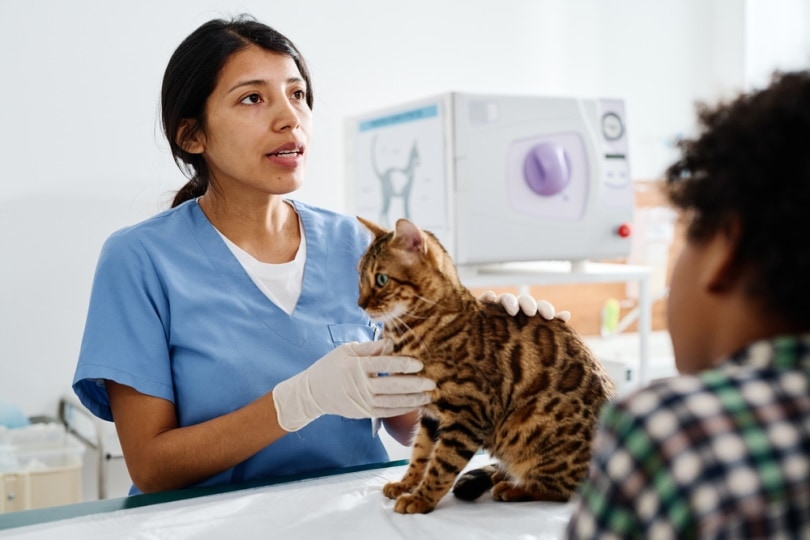
Stroke events in cats are not a fairly common occurrence. However, when they do occur, there is typically an underlying cause to the stroke. The severity of the stroke and why it occurred in the first place will help determine if your cat can recover or not. Some cats can make a full recovery, while others will have permanent issues and/or pass away from the condition.
Continue reading to learn more about signs of a stroke in a cat, why they may occur, and how they can be treated.
What Is a Stroke?
A stroke is when there is a blood clot within an artery, interrupting blood supply to the brain.1 The clot lodges in a blood vessel that is bringing oxygen-rich blood toward the brain. Whatever portion of the brain is being supplied by that artery will then be lacking oxygen and appropriate nutrients.
Your cat would need an MRI to confirm if they have had a stroke or not. However, your veterinarian will likely recommend checking bloodwork, blood pressure, and potentially radiographs.
The point of doing these tests is because, even if your cat has had a stroke, often the stroke is secondary to another disease. These tests are completed to help gain an overall picture of your cat’s health and disease status.

What Are Signs of a Stroke In Cats?
You may notice your cat bumping into things, walking crooked, or walking as if they are drunk. Some cats will lose part of the complete function of one or multiple legs. Some cats may drag a limb and/or have difficulty using it to walk. Other cats may have a head tilt, develop seizures or be blind in one or both eyes. Unfortunately, as with people, sudden death may be the first sign your cat has had a stroke.
Why Do Cats Have Strokes?
Every cat will react differently to cancer. Always speak with your veterinarian about any potential complications or side effects from your cat’s disease.

How Can a Stroke Be Treated In a Cat?
Unfortunately, sudden death is a possibility with a stroke. Other times, your cat may be left with permanent neurologic damage and/or side effects from the stroke, similar to people. The neurologic system repairs and regenerates extremely slowly. Sometimes, not at all. So any damage left by a stroke may be permanent.
Treatment is often aimed at controlling the disease that caused the stroke in the first place. In other words, your vet will want to diagnose if your cat has any of the diseases listed above or others not discussed and start treatment to try and control that disease.
How severe the underlying disease is, and if it can be treated, and how will help determine the probability if the stroke effects can be treated and if your cat will recover. Unfortunately, your cat may be prone to having another stroke in the future, depending on what caused it.
Summary
Stroke events in cats are not a common occurrence. However, when it does occur, often there is another underlying disease process that has caused it. Your cat may or may not recover, and sudden death from a stroke is possible. What caused your cat to have a stroke, how severe the effects are, and how sick they are from their other diseases will all be factors in determining whether your cat will survive a stroke or not.
Featured Image Credit: OlegDoroshin, Shutterstock






